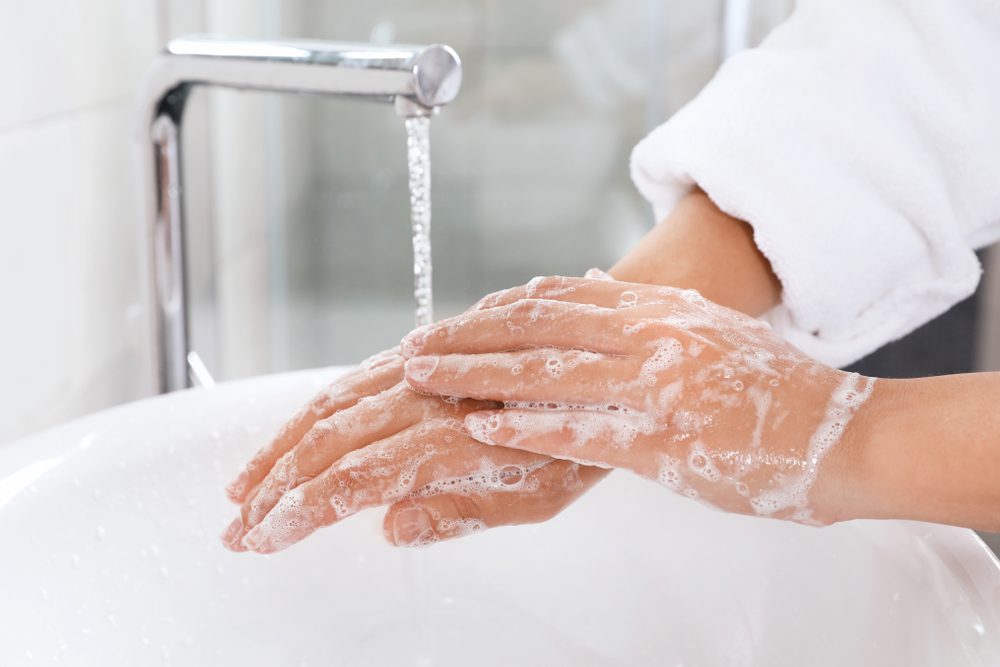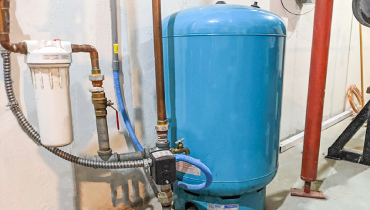On this page underneath you can discover a bunch of great expertise in relation to 10 Reasons for Low Water Pressure in Your House.

Low tide stress in your house can be a discouraging problem, influencing whatever from showering to cleaning meals. If you're experiencing weak water flow, there are numerous feasible causes and options to discover. In this guide, we'll go over common reasons for low water stress and practical steps to address the concern properly.
Introduction to Low Tide Stress
Low tide stress happens when the circulation of water from your faucets, showers, and various other fixtures is weak than common. This can make day-to-day tasks extra tough and less efficient. Recognizing the causes of low tide pressure is vital to discovering the appropriate service.
Common Reasons For Low Tide Stress
Pipe Obstructions
In time, pipes can become obstructed with mineral deposits, debris, or particles, restricting the flow of water. This is an usual problem in older homes with galvanized steel pipes.
Deterioration
Deterioration within pipes can lead to leakages and minimized water stress. Rust accumulation can restrict water flow, particularly in maturing plumbing systems.
Faulty Stress Regulatory Authorities
Stress regulators are accountable for preserving regular water pressure in your house. If they malfunction, it can cause low tide stress or uneven circulation throughout your house.
Community Water Issues
In some cases, the problem lies outside your home. Community water supply concerns, such as main line leakages or upkeep work, can briefly minimize water stress in your area.
Just How to Detect Low Water Stress
Examining Taps and Fixtures
Begin by checking the water stress at various taps and fixtures throughout your home. If the issue is separated to specific locations, it might indicate local troubles.
Inspecting Pipelines
Evaluate noticeable pipes for indications of leakages, corrosion, or clogs. Pay attention to any uncommon noises, such as knocking or rattling pipes, which can suggest problems within the plumbing system.
Consulting with a Plumber
If you're not able to pinpoint the root cause of low water pressure, think about employing a specialist plumber to conduct a detailed examination. They can determine underlying issues and suggest ideal options.
DIY Solutions to Fix Low Tide Stress
Cleaning Aerators and Showerheads
Natural resources can build up in aerators and showerheads, reducing water circulation. Eliminate and clean up these elements frequently to boost water pressure.
Flushing Water Heater
Sediment buildup in the hot water heater can restrict circulation and lower efficiency. Flushing the container periodically aids eliminate debris and keep optimum performance.
Examining Pressure Regulator
Make certain that the pressure regulatory authority is functioning properly. Changing or changing the regulator can aid bring back proper water stress throughout your home.
Clearing Up Clogs in Pipeline
For minor blockages, try utilizing a plumbing snake or chemical drain cleaner to clear obstructions in pipelines. Be cautious when utilizing chemicals and adhere to safety guidelines.
When to Call a Specialist Plumber
If DIY efforts fail to solve the issue or if you suspect considerable plumbing troubles, it's ideal to look for assistance from an accredited plumber. They have the competence and tools to attend to complicated issues safely and effectively.
Preventive Measures to Keep Water Stress
Regular Maintenance
Arrange routine upkeep for your plumbing system to prevent concerns such as deterioration, leakages, and blockages. Addressing small problems early can aid stay clear of more considerable repair services later.
Installing a Stress Booster
Take into consideration installing a stress booster pump to boost water pressure in areas with constantly low circulation. This can be specifically useful for multi-story homes or buildings with high-demand components.
Surveillance Water Use
Be mindful of water use behaviors and avoid ill-using the plumbing system. Easy adjustments, such as incredible showers and laundry lots, can help keep appropriate water pressure.
Verdict
Taking care of low water stress can be discouraging, yet determining the underlying reasons and implementing proper solutions can recover optimal circulation throughout your home. Whether it's cleaning up aerators, inspecting pipes, or seeking advice from a plumber, taking positive steps can ensure a constant supply of water for your day-to-day needs.
FOUR WAYS TO FIX LOW WATER PRESSURE NOW
Turning on a shower or faucet only to find the water comes out in a sad, slow drizzle is never a good feeling. How exactly are you supposed to wash a pan or take a quick shower when it takes 10 minutes just to rinse off a little soap? The good news is that when your water pressure is bad, there's always a cause: typically one that can be easily fixed. Here are some of the most common causes of low pressure and what you can do to fix the issue:
DEBRIS AND MINERAL DEPOSIT BUILDUPS
If you notice low water pressure from just one or two of the fixtures in your house, the problem likely has to do with debris buildup. Water is full of minerals and other debris, all of which can accumulate in your pipes and on your fixtures. This can cause a blockage that affects how much water flows through. To fix this, try filling a small plastic bag with white vinegar, and use a rubber band to hang it around your showerhead or faucet. Let the head of the fixture soak for a few hours, and the vinegar should loosen the deposits.
WATER LEAKS
Leaks are another common cause of low water pressure. If water is flowing out of your plumbing through a hole or crack before it can reach your fixture, the pressure coming out of the faucet or showerhead will be lower. A plumbing professional is your best bet for finding and repairing a leak in your water supply pipes.
Leaks are another common cause of low water pressure. If water is flowing out of your plumbing through a hole or crack before it can reach your fixture, the pressure coming out of the faucet or showerhead will be lower. A plumbing professional is your best bet for finding and repairing a leak in your water supply pipes.
FOUR WAYS TO FIX LOW WATER PRESSURE NOW
Turning on a shower or faucet only to find the water comes out in a sad, slow drizzle is never a good feeling. How exactly are you supposed to wash a pan or take a quick shower when it takes 10 minutes just to rinse off a little soap? The good news is that when your water pressure is bad, there's always a cause: typically one that can be easily fixed. Here are some of the most common causes of low pressure and what you can do to fix the issue:
DEBRIS AND MINERAL DEPOSIT BUILDUPS
If you notice low water pressure from just one or two of the fixtures in your house, the problem likely has to do with debris buildup. Water is full of minerals and other debris, all of which can accumulate in your pipes and on your fixtures. This can cause a blockage that affects how much water flows through. To fix this, try filling a small plastic bag with white vinegar, and use a rubber band to hang it around your showerhead or faucet. Let the head of the fixture soak for a few hours, and the vinegar should loosen the deposits.
WATER LEAKS
Leaks are another common cause of low water pressure. If water is flowing out of your plumbing through a hole or crack before it can reach your fixture, the pressure coming out of the faucet or showerhead will be lower. A plumbing professional is your best bet for finding and repairing a leak in your water supply pipes.
Leaks are another common cause of low water pressure. If water is flowing out of your plumbing through a hole or crack before it can reach your fixture, the pressure coming out of the faucet or showerhead will be lower. A plumbing professional is your best bet for finding and repairing a leak in your water supply pipes.
A VALVE ISSUE
If you have low water pressure throughout your home, check your main shut-off valve to make sure it's completely open. You may also want to see if there's a pressure-reducing valve installed. If there is, have a plumber help you adjust the settings to get the pressure you're looking for.
OTHERS USING WATER
Believe it or not, your low water pressure could be caused by your neighbors. If you notice low pressure at certain times of day, it may be because you and the people living next to you have similar schedules - when everyone is showering at the same time, the pressure will be lower in every home. Low pressure throughout the neighborhood may also be caused by an issue with your municipal water supply. If that's the case, call the supplier to see if they're working on the issue.
https://www.rotorooter.com/blog/water-leaking/low-water-pressure-fixes/

I found that piece of writing about Dealing with Low Water Pressure in Your Home while browsing on the internet. Liked our blog? Please share it. Help somebody else locate it. Thanks for your time. Kindly check our website back soon.
Call